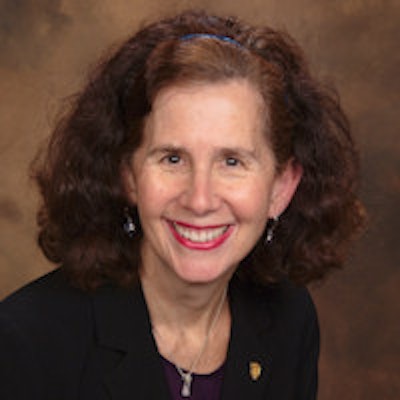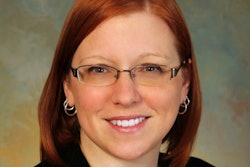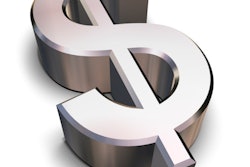
Have you upgraded your credit card terminal yet?
 Sheri B. Doniger, DDS.
Sheri B. Doniger, DDS.The new Europay, MasterCard, and Visa (EMV) terminals, similar to those that have been available in Europe for many years, are supposed to have a higher level of fraud protection via the encrypted chips on the credit cards that supposedly enhance security. These chips are supposed to make counterfeiting cards more difficult. New codes are issued with each transaction with the EMV cards, rather than one code with the older magnetic stripe cards.
Not all of our patients have the EMV chip card yet. At last check, fewer than 40% of Americans have the newer cards, according to a USA Today article. Additionally, around 60% of retail stores will be compliant by the end of 2015, according to creditcards.com. Some of my personal cards have been upgraded, but many of the stores I frequent do not have the new terminals. So, therein lies the frustration.
So why the rush to change terminals? There will be a liability shift from the credit card company to the vendor if there is fraud. The good news is that we know the majority of our patients. The bad news is that we do not know them all.
Historically, if a charge card is used fraudulently, we have 30 days to respond before having the money charged back to the patient. We have to prove that the receipt for professional services has the same name and signature as indicated on the card. If a card does not have the EMV chip on it after October 1, 2015, this protocol will be followed. If the card has a chip, we will be liable for the fraudulent funds.
“The security it gives to both our patients and us is well worth it.”
We all have systems and protocols for our team to do due diligence when accepting credit cards in the office. We always have to ensure that when we receive a credit card from a patient and swipe it for the transaction, the name and signature match the card. With the new EMV cards, the patient will leave the credit card in the machine until the transaction is complete.
Our office does take some credit cards over the phone. We always ask the patient for the card verification value (CVV), which is the three or four digit code on the back of the card, as well as the address (usually the terminal requests the numbers, not the street) and the current ZIP code. Receiving these three key pieces of information is important for refuting any chargebacks that may occur.
The bottom line is: If someone uses a stolen credit card, our offices are liable for the charge. Some offices do perform extensive professional services, and the charges may be extensive, which will affect the practice's bottom line.
We did purchase a new EMV chip reader machine. We will be very early adopters. The cost was not that much, and the security it gives to both our patients and us is well worth it.
Sheri B. Doniger, DDS, practices clinical dentistry in Lincolnwood, IL. She is currently president of the American Association of Women Dentists and editor of the American Association of Women Dentists "Chronicle" newsletter. She has served as an educator in several dental and dental hygiene programs, has been a consultant for a major dental benefits company, and has written for several dental publications. You can reach her at [email protected].
The comments and observations expressed herein do not necessarily reflect the opinions of DrBicuspid.com, nor should they be construed as an endorsement or admonishment of any particular idea, vendor, or organization.



















